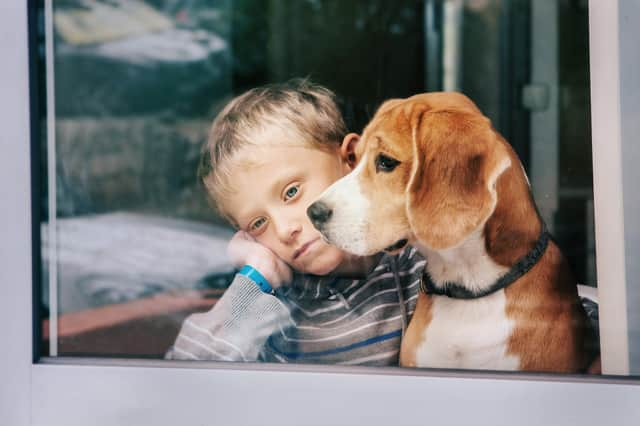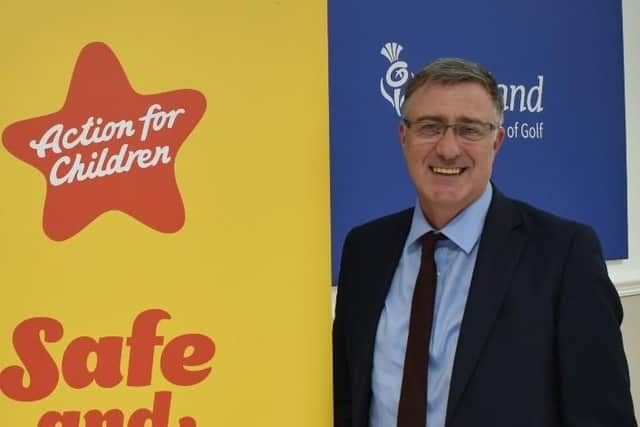We are losing the generation game - Paul Carberry


As part of the Action for Children ‘Star in every Child’ campaign, which highlights that every child deserves a bright future to reach their potential, we surveyed over 5,000 children, parents, and grandchildren across the UK to explore the biggest issues affecting childhood post-pandemic. We asked the three generations to share their views, worries and barriers regarding childhood today and how these impact children reaching their potential.
There was an overwhelming consensus that children’s futures are looking bleak. Over half of parents (56 per cent) and nearly two thirds (62 per cent) of grandparents surveyed in Scotland said that childhoods today are worse, and a quarter of children (25 per cent) agreed.
Advertisement
Hide AdAdvertisement
Hide AdOne of the most concerning findings to come out of the research is the fact that many children are now concerned about ‘adult issues’ including family finances, mental health, and climate change.


Given the severity of the cost-of-living crisis and the multitude of negative consequences for vulnerable families, it is unsurprising that we are seeing these worries seep into the consciousness of children. This is deeply concerning because we know growing up in poverty represents one of the single most significant barriers a child can face in reaching their potential.
The Scottish Government recently published their ‘Tackling Child poverty delivery plan 2022-26’ in which they announced they would increase the Scottish Child Payment to £25 per week. However, we believe far greater measures needed to be taken to ensure Scotland meets its poverty targets. This concern is supported by the likes of The Fraser of Allander Institute, an independent research organisation which stated the Scottish Child Payment needs to be raised to £40 per week for the Scottish government to reach its poverty targets.
In light of the financial woes, nearly 40 per cent of child respondents stated mental health concerns were a major worry. Adding to this concern is the finding that 57 per cent of children admitted to covering up their worries from a parent or carer. Being unable to talk about their worries is cause for concern and we to do more to help encourage open dialogue with families to address issues.
That is why Action for Children offer mental health programmes for children. Our Roots of Empathy programme aimed at primary schools and our Blues Programme for secondary schools have proven to be a high-quality intervention that is both cost-effective and sustainable.
Our family support services support children and families before their situation escalates to the point of intervention from children’s social care. It identifies families' needs, aspirations, capacities, and builds on these to develop positives relationships. It creates a safe space for families to develop the resilience of children and young people so worries aren’t stored up.
Action for Children have campaigned that family support should be a right for all families to access which is tailored to their individual needs. This was one of the main findings from the Promise, which politicians have signed up to keep.
Indeed, we will use the upcoming local elections to ask all candidates to reaffirm their commitment to the Promise and to ensure every family has the right to family support and that funding decisions will deliver more investment for family support services in every local community.
Advertisement
Hide AdAdvertisement
Hide AdSadly, almost three quarters (72 per cent) of parents who we surveyed felt the government is investing too little in services that support childhoods. That is why Action for Children will continue to work with government and push for more investment in areas like mental health and wellbeing provision, making family support a right and ensuring families have more money in their pockets. If we want Scotland to be the best place in the world to grow up, we need to invest in this mission.
Paul Carberry, Action for Children Director.
Comments
Want to join the conversation? Please or to comment on this article.